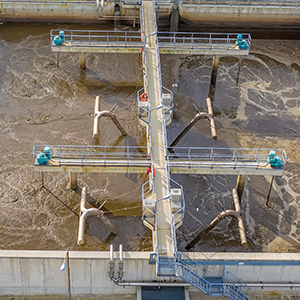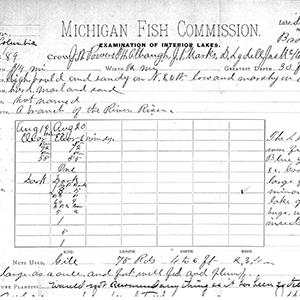
Research Highlights

Municipal Takeovers and Drinking Water
Six of the 11 Michigan cities that have come under state emergency management since 1990 saw changes to their municipal drinking water systems, the most common being rate increases, water shutoffs for nonpayment, and the privatization of water services or infrastructure. That’s one of the findings of a study that used Michigan cases to assess the predictability and rationality of municipal takeovers by states, as well as the consequences for public services such as drinking water systems. Dr. Sara Hughes, an assistant professor at SEAS, was the lead author of the study, which was published in the journal State and Local Government Review.

Floods Increasingly Impact World’s Population
New research in the journal Nature used direct satellite observations of floods to reveal that the proportion of the world’s population exposed to floods has grown by 24% since the turn of the century—10 times higher than scientists previously thought—due to both increased flooding and population migration. “We found that economic development and people moving into flood-prone areas is significantly increasing the number of people exposed to floods in those regions. Furthermore, increasing flood exposure is rooted in underlying conditions that give vulnerable populations no choice but to settle in flood zones,” said study co-lead author Dr. Jonathan Sullivan, who earned a doctorate this year from SEAS.

Is Reusable Always Best?
Consumers likely assume that reusables have fewer environmental impacts, but just how green are these products? U-M researchers, including Dr. Shelie Miller, an environmental engineer at U-M’s Center for Sustainable Systems, compared the lifetime environmental impacts of common kitchenware products—both single-use plastics and reusables—and uncovered some surprising and counterintuitive results. The researchers looked at consumer kitchenware products in four categories: drinking straws, sandwich bags and wraps, coffee cups, and forks. They found that some reusable alternatives never manage to reach that break-even point because of the energy and water used each time a reusable item is washed. The study was published in the International Journal of Life Cycle Assessment.

Digitizing Fish Records
U-M researchers are enlisting the help of citizen scientists in a new project to digitize thousands of historical records—some dating back more than a century—about Michigan inland lake conditions and fish abundances. Scientists will feed the digitized data into computer models to study the impacts of climate change and other factors on the fish in Michigan’s inland lakes. “Starting more than a century ago, lake surveys have been used to understand how fish were distributed across the state, which lakes would support sport fishing, and how lakes should be managed,” said project co-leader Dr. Karen Alofs, an aquatic ecologist and an assistant professor at SEAS. “Digitizing this historical data will allow us to analyze trends in fish communities over time and to relate those trends to a warming climate and to other environmental changes and management decisions.”

